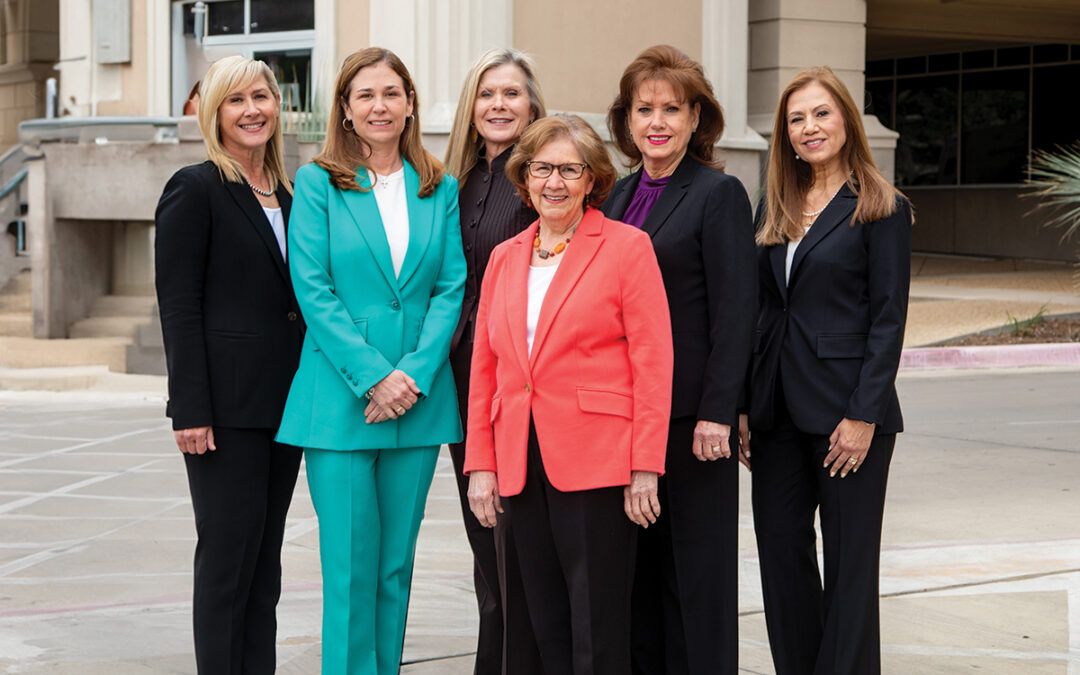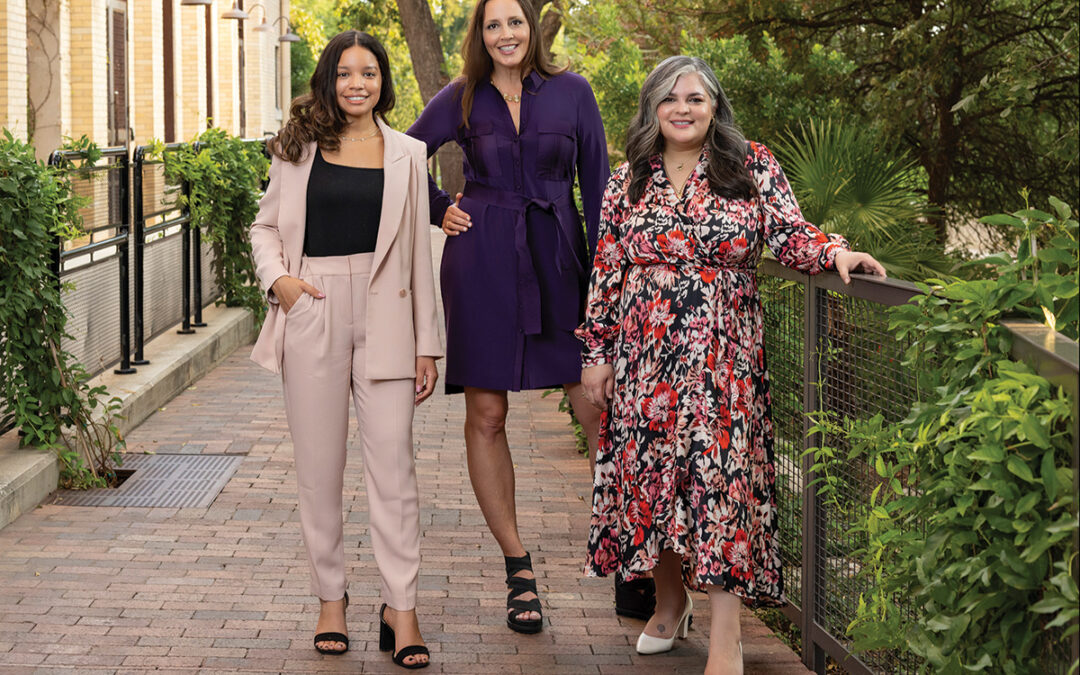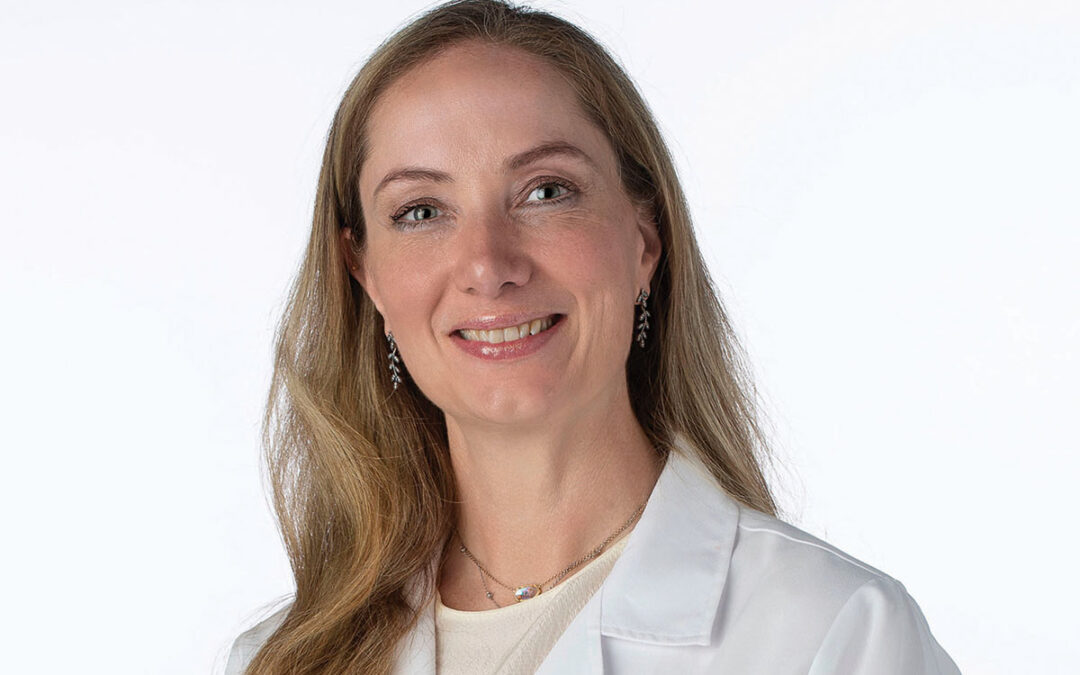The story goes that when a CPA hears, “How do I love thee? Let me count the ways,” he or she is more interested in the counting than the ways. This may have been true of the older generation of accountants, but not of today’s female counterparts. They’re interested in both!Take the four women presented here. They represent the groundswell of females who have entered the field of accounting over the past 20 years. Many rise to the levels of partner or shareholder, the equivalent of president or vice president in other industries.
By the numbers they are:
Kim Ford
Barrel Racer
Racing a horse around barrels is what Kim Ford did for fun as a youngster. She won nearly 30 trophies and 10 belt buckles in this exciting sport. Now she’s traded barrel racing for public accounting, which can be just as exciting on any given day.
“Clients call when a catastrophe happens, and you have to take care of the problem,” says Ford, 42, a partner at Hill and Ford PC. “I don’t crunch numbers all day, I talk on the telephone. I work with different clients all the time — different needs, different personalities and different industries. That makes it exciting for me.”
Her specialty is the oil and gas world. She describes it as “always crazy.”
“Say you get a group of investors together, and then you get operators to drill a well,” she explains. “As they drill, you talk to them and everything is great. The next day you talk to them and you hear ‘Oh, my gosh! We had a blowout, and now we have to spend extra money to fix it!’ Anxious investors start calling. ‘What’s going on with this deal?’ ‘How am I going to account for this?’ ‘What’s the tax implication for me?’ Then the operators pull the oil out — they’ve got a good well. Everything is fine, and everyone is happy. They’ve forgotten about the blowout.”
Whew!
“I don’t have the stomach to invest in oil and gas,” says Ford. “But it’s exciting to be on the sidelines and help.” Ford grew up in oil-rich West Texas where, at age 14, she baby-sat for a CPA’s children. Once the dad learned she was interested in being a CPA, too, he encouraged her, as mentors do. At 16, she began working at his firm. She worked her way through college while majoring in accounting. She then moved with her husband and baby daughter to San Antonio, where she started working with Gerald Hill.
When Ford’s daughter was three, her parents’ divorce was final. Fortunately, Hill was open to change. “He understood that if I took off an hour in the morning to go to a PTA meeting, I was going to make it up somehow because I was committed to the firm,” says Ford.
Ten years later, she made partner.”If you like dealing with people, and you like solving problems for them, and you have a propensity for numbers, this career can be so much fun,” says Ford. “I get to come to work everyday to a really nice office where people respect me; they listen to me, and I get paid really well.”
I don’t understand why there aren’t more people coming into public accounting. I think the perception is that there are so many long hours during tax season. That it’s grueling. It can be,” Ford recognizes. “But you don’t get a whole lot if you don’t work very hard.”
Patricia Quintana Perron
Family Mediator
When Patricia Quintana Perron of The Hanke Group walks into her first meeting with clients, she imagines their thoughts by the looks on their faces.
“Is this our new CPA? She looks 12 years old!” At a petite 4 feet 10, she does look young. But once this 34-year-old sits down and starts talking about business strategies, she perceives a shift in clients’ attitudes. “At some point they seem to have an ‘a-ha moment’ of ‘So that’s why she was referred to us’,” says Perron.
Oh, she’s savvy, all right. Not only is she a CPA, but she also holds an MBA after completing a double major of accounting and management in three years. While most accountants don’t reach shareholder level until their late 40’s, she reached this position at age 30.
Growing up, she helped her dad, a self-employed business owner, with his books and with invoicing. In high school she enjoyed her accounting class, and her future seemed targeted toward accounting. “But counselors at the university tried to push me in the direction of law,” she remembers. “It’s because of my writing skills. They thought legal work would be right up my alley. I didn’t choose law, but I work with a lot of attorneys now.” In fact, her specialty is people in service businesses — doctors, attorneys, architects and engineers.
While Perron enjoys working with numbers, she loves being able to help people. In estate work, dealing with families requires delicate communication. “I feel like I’m part psychologist, part accountant,” she says. The stress resulting from a death in the family can cause dissension. “At times, I’ve been the mediator, trying to build family ties again.”
Her day typically starts by 9 a.m. “I will deal with 40 voice mails throughout the day,” she says. “Most of the day I spend on the phone or in appointments with clients, working through any issues they might have.”
While Perron sees accounting as offering great opportunities for women, she admits the requirements are tough. “You have to go for a master’s degree. Then you have to work in the business world two years after passing the exam before you’re considered a CPA. So it’s very competitive.”
It helps to marry an accountant. “My husband is also a CPA,” she says. “He understands the long hours of tax season.”
Denise Bendele
Financial Interpreter
Denise Bendele, partner at Padgett Stratemann & Co., is another horse-lover turned accountant. Bendele’s preference, though, is “cutting.” She explains that in “cutting,” the rider and the horse separate a cow from the herd and control it to keep it from returning to the herd.
“It is a lot of fun,” she says, “and very difficult to master.”
And that’s similar to what she likes about her accounting job. It’s fun, yet it can be complex.
“I work in two main industries,” says Bendele, 38. “One is manufacturing and wholesale distribution. The other is construction. I like the people in these industries, and what they do is very interesting to me. It’s interesting, for instance, to learn how bridges are constructed and about different food products.”
That’s the fun part.
She’s also intrigued by the complexity of their accounting issues.”I have to understand my clients’ operations. When I put together a financial report, it’s like I’m putting their story into a package, telling my client’s story in a financial way,” she says.
Though Bendele has never owned a business, her father, a produce broker, did. “I grew up understanding and living a lot of the concerns my clients face every day. My father faced some of the same issues, which affected our family,” she recalls.
Her expertise has branched from strictly accounting to consulting on a multitude of issues, such as human resources and long-range growth strategies. As a Certified Valuation Analyst, she can determine what a company is worth when it goes up for sale.
Bendele sees accounting as an excellent profession for women but acknowledges the competition for good jobs. “It’s important to get good grades in college,” she says, “and to be active in the associations at school.” She says the first few years may be the hardest: “At first, you learn new things every day. Be prepared to commit to your career and spend time studying and learning. I think a lot of people who enter this profession don’t realize how hard you have to work. There’s a big learning curve when you start. But it gets better.”
After 17 years in the business, Bendele still works at improving her knowledge. “I take a lot of pride in bringing new ideas to my clients to help them in their businesses.”
She explains, “I don’t want to be just a ‘numbers’ person.”
Judith Kenton
Russian Literature Expert
You might say CPA Judith Kenton majored in Russian and minored in life.
Because she found Russian literature fascinating, she majored in Russian language. “I even started graduate school at Harvard in a program called ‘Soviet Union Region Studies’,” she recalls. She soon realized that career path led to foreign service in Russia and switched gears quickly. “I had a husband and a baby. I wasn’t going to Russia,” she says.
Kenton found a job selecting foreign language periodicals for the Sloan School of Management because she knew four languages. Intrigued by on-the-job exposure to business and economics, she decided to study for an MBA, which she completed in 1979. “Of course, I had to go back and take all the business classes,” she remembers.
That’s when the epiphany happened. As she sat in her first accounting class, she thought, “This stuff is great! This is what I want to do!” That’s how she got into accounting.
“Any time I had an elective, I took accounting,” she says. Eventually she had enough hours to sit for the CPA exam, which she passed on the first try. “I think I was truly meant to do accounting,” she says. “I can’t explain it.”
After working briefly for one firm, she moved with her husband to San Antonio. Soon afterward, the company he worked for went bankrupt. So the couple bought his division of the company in 1986. They sold it in 2001. Kenton remembers it vividly. “It was a good education for me in accounting and how businesses work, and what it’s like to make payroll, ” she recalls. “You know — the real world. We were out there getting loans and paying bills and really taking care of business. I have been the last person to get paid.”
She worked for the Heart and Vascular Institute for five years. “Again, I got a lot of real-world experience,” she says. At the Institute, she was in charge of billing and learned about hiring and firing. In 2000, she joined Carneiro, Chumney & Co. LC, as a tax manager.
“Every day is different,” says Kenton. “Over the years, I’ve done some work trying to figure how much money was stolen after it was gone so the insurance company would pay off on the fidelity bond. I’ve been in factories counting pieces of cardboard.
“One of my positions was auditing. Once when we were auditing a credit union on a military base, one of the auditors inadvertently set off the alarm. Suddenly, a bunch of soldiers ran in with M-16s pointed at us. We backed up against the wall, and yelled, ‘We’re CPAs! We’re CPAs!’ You can’t imagine what happens to you out in the field sometimes,” she says.
Author: Paula Syptak Price
Photographer: Greg Harrison









0 Comments